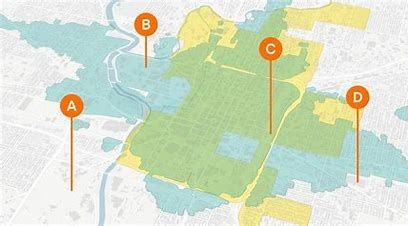Site Selection
Site selection involves choosing a location for a new project, facility, or expansion. The process can vary depending on the type of project (e.g., retail, industrial, residential, or commercial development) but typically includes several key considerations:
1. Purpose and Requirements: Define the primary purpose of the site and the specific requirements that must be met. This could include size, infrastructure needs, and specific location characteristics.
2. Market Analysis: Evaluate the local market to understand demand, competition, customer demographics, and economic factors that might impact the success of the project.
3.Accessibility: Consider how accessible the site is for potential customers, employees, and suppliers. This includes evaluating transportation networks, parking availability, and public transit options.
3. Zoning and Regulations: Check local zoning laws to ensure that your intended use is permitted. Also, consider potential regulatory hurdles, including environmental restrictions and the potential for future zoning changes.
4. Infrastructure and Utilities: Assess the availability and capacity of essential services such as water, electricity, gas, and telecommunications. Also, consider the costs associated with connecting to or expanding these services if needed.
5. Cost: Evaluate the cost of acquiring the site, along with ongoing operational costs, such as taxes, utilities, and maintenance. Also, consider potential incentives offered by local governments for development in certain areas.
6. Environmental Considerations: Assess the environmental impact of your project and consider the site's susceptibility to natural disasters. Environmental assessments might be required to identify potential issues.
7. Community Impact and Relations: Understand how your project will impact the local community and consider any opposition or support from local residents and businesses. Good community relations can be crucial for the success of some projects.
8. Future Growth: Consider not only the current needs but also the potential for future expansion. Ensure the site can accommodate growth without significant additional investment.
9. Due Diligence: Conduct a thorough due diligence process to uncover any potential issues with the site, such as legal disputes, land claims, or contamination.
Selecting a site is a complex process that involves balancing many factors to find the best location for your project. It often requires a multidisciplinary approach, including expertise in real estate, urban planning, environmental science, and economics.

